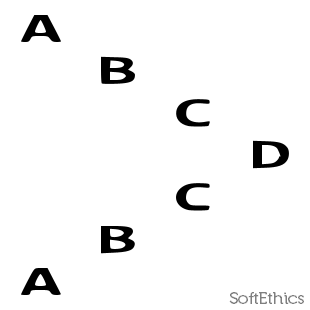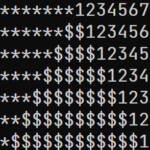- C
- C++
- Java
- C#
- Python
C
#include <stdio.h>
int main()
{
int n = 7; // prefer odd
int i,j;
int x = 1;
for(i = 1; i <= n; i++)
{
for(j = 1; j <= x; j++)
{
if (j == x)
{
printf("%c ", j + 64);
}
else
{
printf(" ");
}
}
printf("\n");
if (i <= n / 2)
x++;
else
x--;
}
return 0;
}






